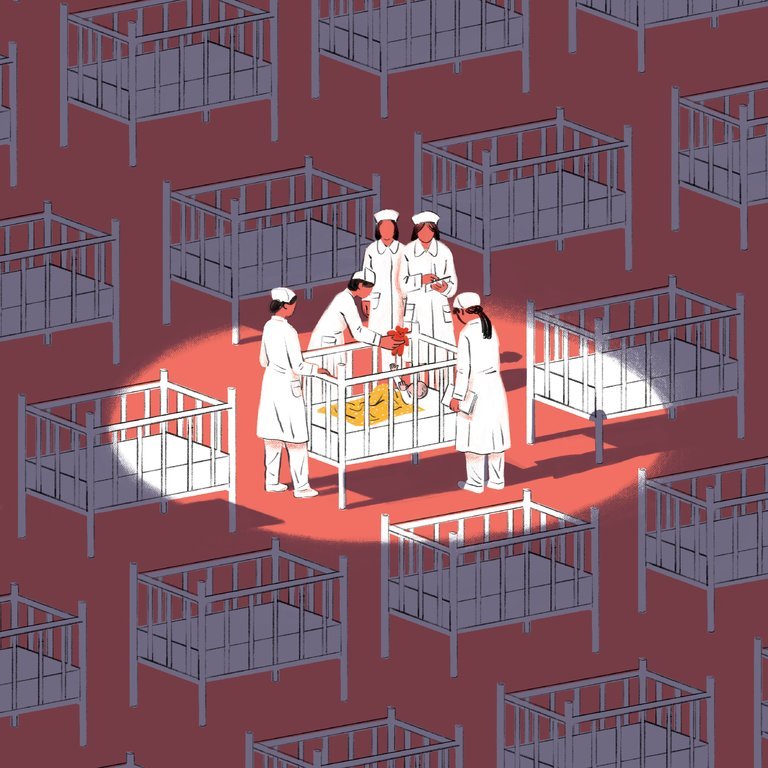
Feb 21, 2018
One-child policy, two-child policy — whatever the demographic program, the C.C.P. continues to view women as the reproductive agents of the state, as instruments of implementation for its eugenic development agenda.
The latest campaign takes special aim at the educated. An article originally published in December 2015 in the Beijing Youth Daily, the official publication of the Communist Youth League, urged female students to have babies — and featured a photo of the blacked-out silhouette of a woman in university-graduation gown and mortarboard, holding an infant (in full color). It has been widely reprinted, under peppy headlines like “University in Beijing has over 10 female student mothers: Bright job prospects” (The People’s Daily Online) and “ ‘Already had a baby’ becomes a sought-after quality in the job-hunting season — more female university students prepare for pregnancy” (sohu.com). Another article on sohu.com, a popular website that runs state-media reports, played up the romance of having children early: “Female university student’s joyful love: freshman year — live together, sophomore year — get pregnant, junior year — have baby.”
At the same time, the government discourages unmarried women from having babies — by way of fines and administrative hurdles — because it sees marriage and family as a pillar of social stability. As far back as 2007, it was trying to stigmatize women who remained single after the age of 27, calling them sheng nu, “leftover” women. Today, it is expanding official matchmaking initiatives. The Communist Youth League organizes mass blind dates across the country while teaching young people what it calls “the correct attitude” toward love and marriage.
The approach’s eugenic undertones are unmistakable. Even as officials urge college-educated, Han Chinese women to marry and get pregnant, they are discouraging, sometimes through coercion, ethnic minorities with high birthrates — particularly Uighurs in the northwestern region of Xinjiang — from having more children. Last summer, government officials invoked “ethnic equality” to announce the end of a longstanding exception that had allowed Uighurs and other groups to have one more child than families from the Han majority.
But people aren’t responding to the new policy as the government had hoped.
Many Han women, for example, are pushing back against the government’s singles-shaming and its continued attempt at reproductive social engineering.
The figures released last month by the National Bureau of Statistics do not provide a breakdown comparing, say, urban and rural birthrates, but polls and anecdotal information are revealing. In a May 2017 survey of more than 40,000 working women by Zhaopin, one of China’s largest online recruitment websites, about 40 percent of respondents who had no children said they did not want to have any, and nearly 63 percent of working mothers with one child said they did not want to have another one. The women surveyed said that the main reasons for these positions were lack of time and energy, the expense of raising children and “concerns over career development.”
The implications of such findings are potentially staggering, considering the speed at which China’s middle class is growing. In 2016, the Economist Intelligence Unit estimated that the number of Chinese belonging to upper-middle-income or high-income brackets, which reached 132 million (or 10 percent of the population) in 2015, would rise to 480 million (and 35 percent of the population) by 2030.
In other words, China’s latest family-planning policies aren’t just another violation of women’s rights; they are also an ineffectual means of promoting the government’s population-growth agenda. And so, even going by its own logic, the C.C.P. should abandon these measures.










